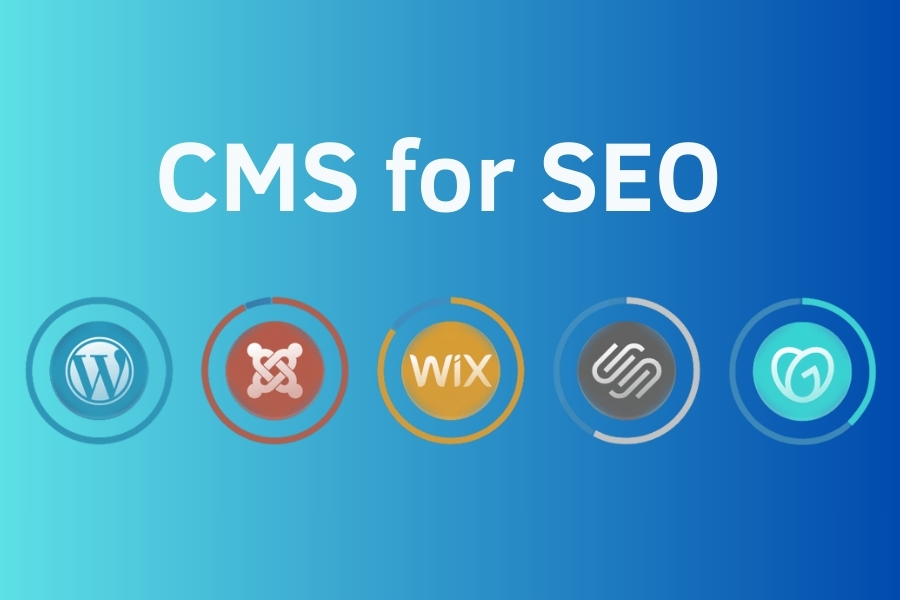
In today’s digital age, having a website is not enough. If you want to rank higher on Google and drive organic traffic, your choice of CMS (Content Management System) plays a crucial role. A CMS not only helps you manage your website efficiently but also impacts SEO performance. In this guide, we explore 7 CMS platforms that can skyrocket your Google rankings, their features, and why they are SEO-friendly.
What is a CMS?
A Content Management System (CMS) is software that allows you to create, manage, and publish content on your website without extensive coding knowledge. Popular CMS platforms offer SEO-friendly features, plugins, and customization options to improve your website’s visibility on search engines.
Why CMS Choice Matters for SEO
Choosing the right CMS can make a huge difference in how Google indexes your website and how easily you can implement SEO strategies. Key aspects influenced by a CMS include:
-
URL Structure: Clean and SEO-friendly URLs improve search engine readability.
-
Site Speed: Fast-loading websites rank better on Google.
-
Mobile Responsiveness: Mobile-friendly sites get a ranking boost.
-
SEO Plugins & Tools: Some CMS platforms have built-in tools to optimize metadata, headings, and sitemaps.
-
Security: Secure websites (HTTPS) are favored by Google.
1. WordPress
WordPress is the most popular CMS worldwide, powering over 40% of websites. It is highly SEO-friendly thanks to its extensive ecosystem.
Why it’s great for SEO:
-
Plugins like Yoast SEO and Rank Math simplify optimization.
-
Mobile-responsive themes.
-
Clean and customizable URL structures.
-
Frequent updates and strong community support.
Best For: Bloggers, small businesses, e-commerce sites, and content-heavy websites.
2. Shopify
Shopify is a CMS designed specifically for e-commerce websites. Its SEO features help online stores rank better and attract organic traffic.
SEO-Friendly Features:
-
Automatic sitemap generation.
-
Optimized meta titles and descriptions for products.
-
Fast and mobile-friendly themes.
-
Integration with Google Analytics and Search Console.
Best For: E-commerce businesses and online stores looking for a reliable platform.
3. Wix
Wix has evolved into a powerful website builder with solid SEO capabilities. Its drag-and-drop interface makes it easy to optimize websites for beginners.
SEO Advantages:
-
Built-in SEO Wiz tool for step-by-step guidance.
-
Easy customization of meta titles, descriptions, and alt texts.
-
SSL certificates included for security.
-
Mobile-friendly and fast-loading templates.
Best For: Small businesses, portfolios, and local service websites.
4. Squarespace
Squarespace is known for its beautiful templates and ease of use. It is highly SEO-optimized for creative professionals and small businesses.
SEO Features:
-
Automatic sitemap generation.
-
Clean code structure for better crawling by search engines.
-
Mobile optimization and responsive web design.
-
Simple integration of Google Search Console.
Best For: Creative professionals, photographers, designers, and boutique businesses.
5. Joomla
Joomla is a flexible CMS that is slightly more advanced than WordPress but offers strong SEO potential for experienced users.
SEO Benefits:
-
Easy control over meta descriptions, titles, and keywords.
-
Supports custom URL structures.
-
Numerous SEO extensions like sh404SEF.
-
Multi-language support improves global SEO reach.
Best For: Large business websites, community portals, and multilingual sites.
6. Drupal
Drupal is a powerful CMS for developers who want full control over website SEO. It is highly secure and scalable.
SEO-Friendly Features:
-
Customizable URL paths and metadata.
-
Mobile-responsive and fast.
-
Strong caching for better performance.
-
Advanced SEO modules for granular optimization.
Best For: Enterprise websites, large-scale e-commerce website and tech-heavy projects.
7. Magento
Magento is an e-commerce CMS designed for medium to large online stores. Its SEO features help online retailers rank higher on Google.
SEO Advantages:
-
SEO-friendly URL structures for products and categories.
-
Customizable meta tags and rich snippets.
-
Mobile-friendly and responsive templates.
-
Integration with Google Analytics and advanced SEO tools.
Best For: Large e-commerce websites with multiple product categories.
Tips for Choosing the Right CMS for SEO
-
Check SEO Plugins: Ensure the CMS has tools to optimize titles, meta descriptions, and sitemaps.
-
Mobile Responsiveness: Choose a CMS that supports responsive design.
-
Page Load Speed: Lightweight CMS platforms help improve speed, which is a ranking factor.
-
Security: Look for CMS platforms with SSL support and regular updates.
-
Customization: A flexible CMS allows you to implement advanced SEO strategies as your website grows help of trusted SEO Company In Jaipur.
Conclusion
Selecting the right CMS is crucial for your SEO success. Platforms like WordPress, Shopify, Wix, Squarespace, Joomla, Drupal, and Magento provide tools and features to optimize your website and improve Google rankings. For beginners, WordPress and Wix are perfect, while advanced users and large businesses can benefit from Drupal or Magento.
By choosing an SEO-friendly CMS and leveraging its features, you can drive more organic traffic, improve rankings, and grow your online presence in 2025 and beyond.
“Novel Web Creation Team has been providing Website Design,eCommerce Account Management Services, Digital Marketing and many other online business solutions for the last 11 years.”



